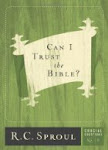Last night I finished reading through the book of Job and I just had one thought I wanted to share with all of you:
None of us deny that Job was an amazing man, and I for one look forward to meeting him. One thing that really touched me was the classic verses in Job 1:21, in which Job reacts to news that his children have perished..."Naked I came from my mother's womb, and naked shall I return there. The LORD gave, and the LORD has taken away: Blessed be the name of the LORD"
Did you catch that? ..."the LORD has taken away, Blessed be the name of the LORD"!
You know I've thought much on this matter, and all I can say is that the loss of my children is THE most terrible loss that I can imagine experiencing...in the flesh, I know that I would lose my mind with grief. Yet my prayer, dear brothers and sisters, is that God will not find me wanting if He ever chooses to test me in this matter. I pray that I will echo the words of Job, that while my children lie in their graves I will turn to Him for comfort and for solace. I pray that my hope is not a shallow one, that my confidence in eternity and in His promises is not so meaningless that the flesh will win out and my mind be lost to grief.
All of you, I'm sure, are familiar with the story of how "It is well with my soul" was written. Wheneve I think of it I cannot help but shed tears because there was another man who exhibited by his testimony that He had real and true confidence in the Lord. For those of you who don't know the story, here goes:
This hymn was written after several traumatic events in Spafford’s life. The first was the death of his only son in 1871, shortly followed by the great Chicago Fire which ruined him financially (he had been a successful lawyer). Then in 1873, he had planned to travel to Europe with his family on the S.S. Ville Du Havre, but sent the family ahead while he was delayed on business. While crossing the Atlantic, the ship sank rapidly after a collision with another ship, and all four of Spafford's daughters died. His wife Anna survived and sent him the now famous telegram, "Saved alone." Shortly afterwards, as Spafford traveled to meet his grieving wife, he was inspired to write these words as his ship passed near where his daughters had died.
It Is Well With My Soul
When peace like a river, attendeth my way,
When sorrows like sea billows roll;
Whatever my lot, Thou hast taught me to say,
It is well, it is well, with my soul.
Refrain:
It is well, with my soul,
It is well, with my soul,
It is well, it is well, with my soul.
Though Satan should buffet, though trials should come,
Let this blest assurance control,
That Christ has regarded my helpless estate,
And hath shed His own blood for my soul.
My sin, oh, the bliss of this glorious thought!
My sin, not in part but the whole,Is nailed to the cross,
and I bear it no more,Praise the Lord, praise the Lord, O my soul!
And Lord, haste the day when my faith shall be sight,
The clouds be rolled back as a scroll;
The trump shall resound, and the Lord shall descend,
Even so, it is well with my soul.
Horatio Spafford
[http://en.wikipedia.org/wiki/It_Is_Well_With_My_Soul]
Isn't that amazing? God grant that, in all things, every one of us would give you praise, and glory, and honor. And may our lives be so in line with your Word that whatever comes our way, we can say together with the saints that have gone before us, "Blessed be the name of the LORD"
There is another thought, however, that I wish to share with you. Throughout the book of Job he must endure the advice of his friends. Yet after Elihu's words, God Himself addresses Job. Beginning in chapter 38 and continuing through 41, God does not explain Himself to Job...He does not reveal to him why he has had to endure the suffering that he has...NO! Far from it. God questions Job and says, if I may paraphrase, "who do you think YOU are to question Me?"
What is Job's response to the revealed majesty of God? In Job 41:2-6 we find the following:
"I know that You can do everything, and that no purpose of Yours can be withheld from You. You asked, "Who is this who hides counsel without knowledege?" Therefore I have uttered what I do not understand, things too wonderful for me, which I did not know. Listen, please, and let me speak; You said "I will question you, and you shall answer Me." [here comes the best part!] I have heard of You by the hearing of the ear, but now my eye sees You. Therefore I abhor [or despise] myself, and repent in dust and ashes."
Do you get that? Job does not say, "fine then! don't answer my question, see if I care!" NO! Upon hearing God and witnessing through His words the revealed majesty of Almighty God, Job says "Therefore I abhor myself, and repent..." Why does he despise himself? Hint: See Isaiah 6:1-5
How can we who are sinful creatures stand before a Holy God? We cannot! Stnading before the majesty, the glory, the holiness of our Master we recognize how terrible indeed our sin is...and we recognize what a terrible thing it was for God Himself to come down from heaven, take human flesh upon Himself, live a perfect life, and suffer the penalty that we should rightly suffer! We recognize what a terrible thing and what a beautiful thing that is as well...do we not? Brothers and sisters...do we love our Redeemer? May the answer of every heart be yes...may we never fail to appreciate what it was that was accomplished on that terrible cross when the One True God was put to death by mankind! What a glorious, merciful and loving God we serve!
Amen?
Thursday, November 8, 2007
Subscribe to:
Post Comments (Atom)





1 comment:
The last few chapters of Job are some of my favorite passages in the entire Bible.
Psalm 104:31-32 (New American Standard Bible)
New American Standard Bible (NASB)
31Let the glory of the LORD endure forever;
Let the LORD be glad in His works;
32He looks at the earth, and it trembles;
He touches the mountains, and they smoke.
Todd W.
Post a Comment